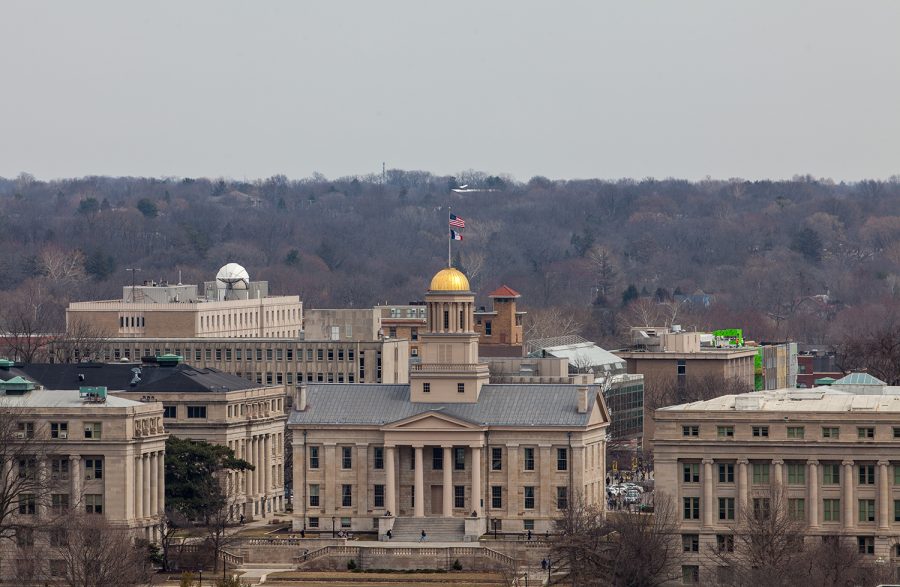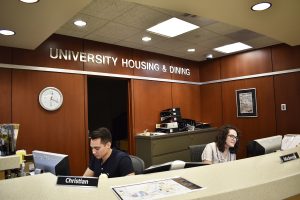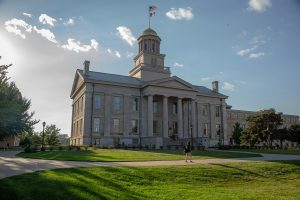State Board of Regents recommend approval of University of Iowa capital improvement
The state Board of Regents recommended approval for the capital improvement business transactions proposed by the University of Iowa.
The Old Capital from the roof of UIHC in Iowa City, Iowa on March 25, 2019.
April 18, 2019
The state Board of Regents on April 18 recommended approval for the University of Iowa capital improvement business transactions on the relocation of the cardiovascular procedure recovery room and the installation of microbiology automation equipment in the UI Hospitals & Clinics Boyd Tower.
The request from the UI was for regent approval of the schematic design, project description, and budget of the proposed projects.
The relocation of the cardiovascular procedure recovery room in the UIHC Carver Pavilion has a proposed budget of slightly more than $11 million and the installation of the microbiology automation equipment has a proposed budget of $2.12 million. Both projects will be funded by hospital building-use funds.
RELATED: Regents give the green light to Hillcrest Residence Hall project
According to regent documents, the first project would build a new cardiovascular procedure recovery unit, including a new catheterization lab. Currently, patients have to be transported to a separate area of the building to recover after a cardiovascular procedure. The construction of this unit would prevent that move, improving patient safety and improving efficiency, the documents said.
“This project, made possible by the heart and vascular center project in 2017, made space available for us to consolidate and bring the CPRU to the fourth floor of the Roy Carver Pavilion and add one new Cath lab, which would give us a total of six,” UI Senior Vice President for Finance and Operations Rod Lehnertz said at the meeting.
The bidding on the relocation project will open in August, and construction will run from September to September 2020.
The second project, the microbiology automation equipment installation, “would purchase and install a machine that automates the workflow of specimen processing in the microbiology lab,” according to the documents.
The machine would be used to standardize and mechanize the processing and set up specimens to identify and test bacteria from more than 40 different body sources, the documents said. The lab will include technologies that view bacteria growth without touching the specimen plate.
The project also includes electrical, plumbing, and casework relocation to accommodate for the machine, Lehnertz said.
The bidding for the installation will open in June, and construction will go from July to September.





